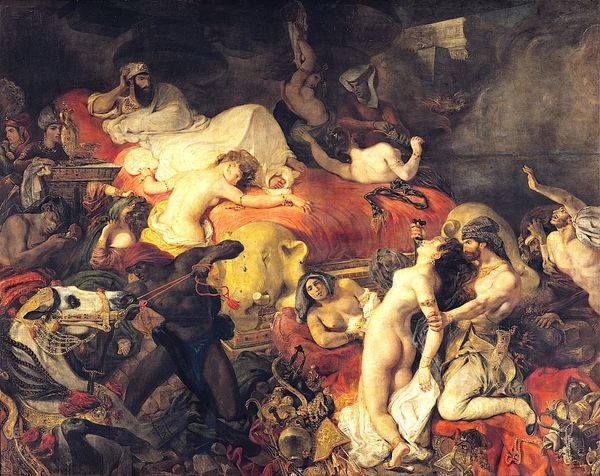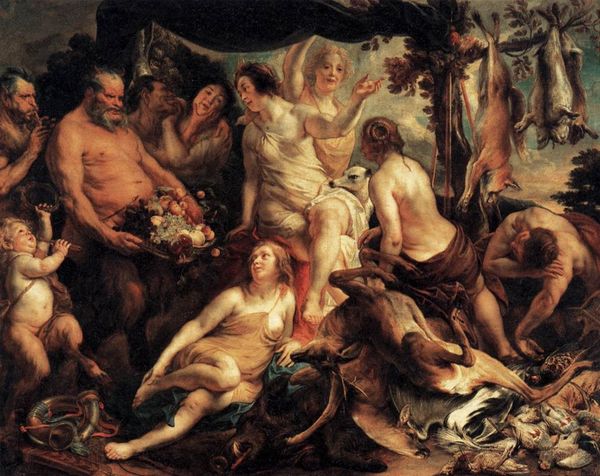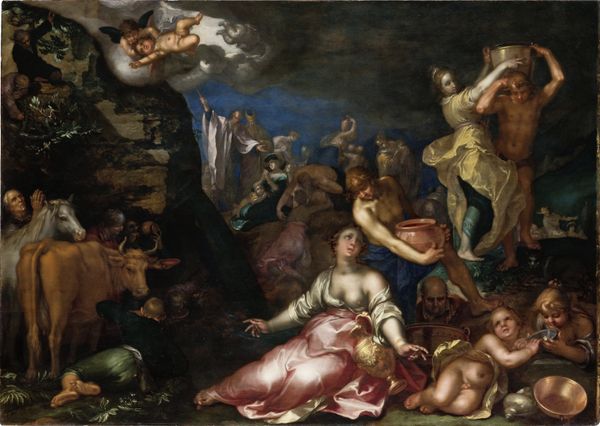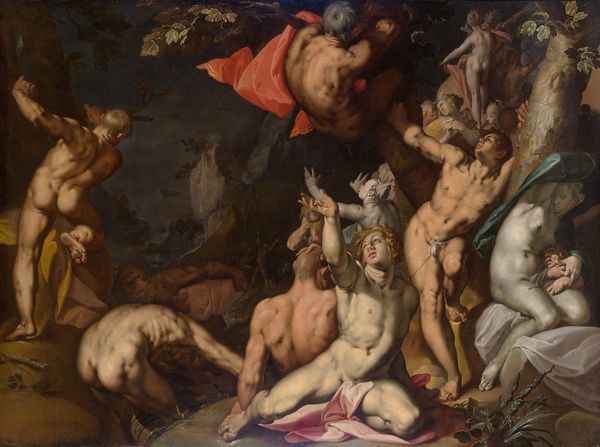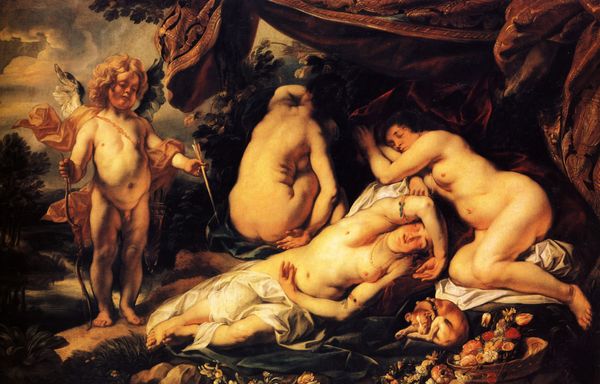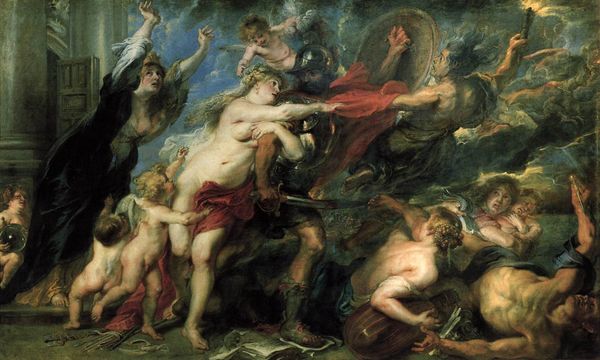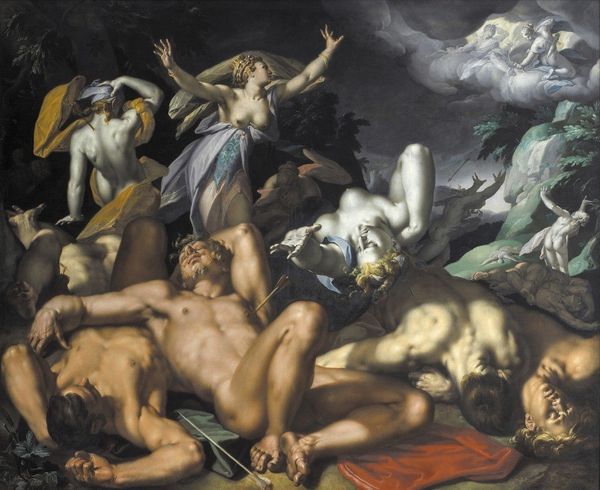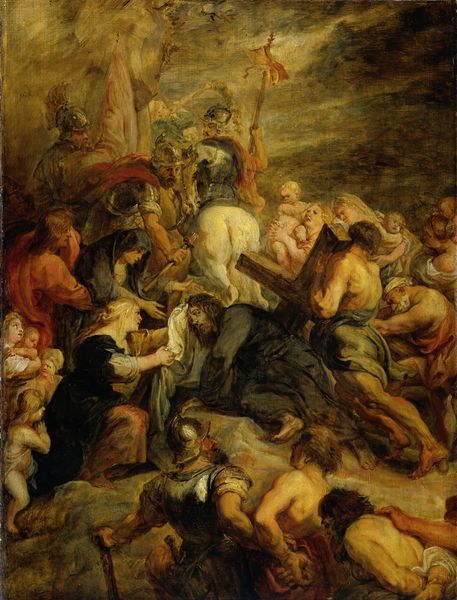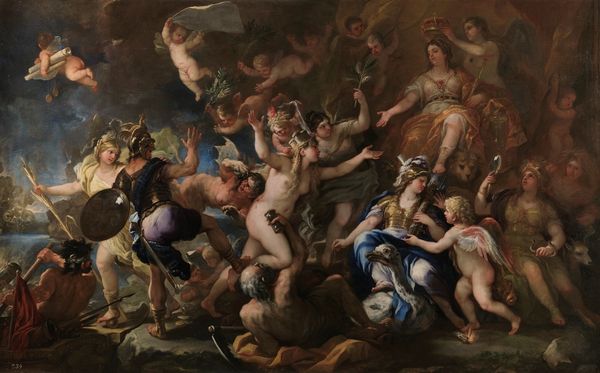
painting, oil-paint
#
figurative
#
painting
#
oil-paint
#
figuration
#
romanticism
#
history-painting
#
nude
#
mixed media
Copyright: Public Domain: Artvee
Editor: Here we have Eugène Delacroix’s "Death of Sardanapalus," painted in 1827, using oil on canvas. It’s quite overwhelming – all this violence and implied sensuality. What do you see in this piece beyond the dramatic chaos? Curator: Beyond the immediate spectacle of death and destruction, I see a potent commentary on power, Orientalism, and the objectification of bodies. Delacroix is working within a Romantic framework, but we can also read this painting through a postcolonial lens. Consider the figure of Sardanapalus himself, passively observing the carnage. Editor: So you're saying it's more than just a historical scene; it reflects larger power dynamics? Curator: Precisely. Think about who is given agency and who is denied it. The women, the enslaved people, are all caught in this spectacle of violence enacted by a decadent ruler. How does Delacroix’s use of the exotic “Orient” play into Western fantasies and power structures? Is this painting a critique, or does it perpetuate those fantasies? Editor: That’s… uncomfortable to think about. It definitely complicates the idea of just appreciating it for its artistic skill. Curator: Exactly. And the lush colors, the dynamic composition – they can distract us from the underlying issues. We must consider the gaze through which Delacroix presents this scene and question his intentions. What effect does the sensual depiction of violence have on the viewer? Editor: It really makes you question the artist’s role – is he condemning or celebrating this violence? Thank you – I am looking at this so differently now. Curator: The point is to ask questions, to not accept the image at face value. By engaging with the social and political context, we can gain a deeper understanding of the artwork’s power and its potential complicity.
Comments
No comments
Be the first to comment and join the conversation on the ultimate creative platform.
